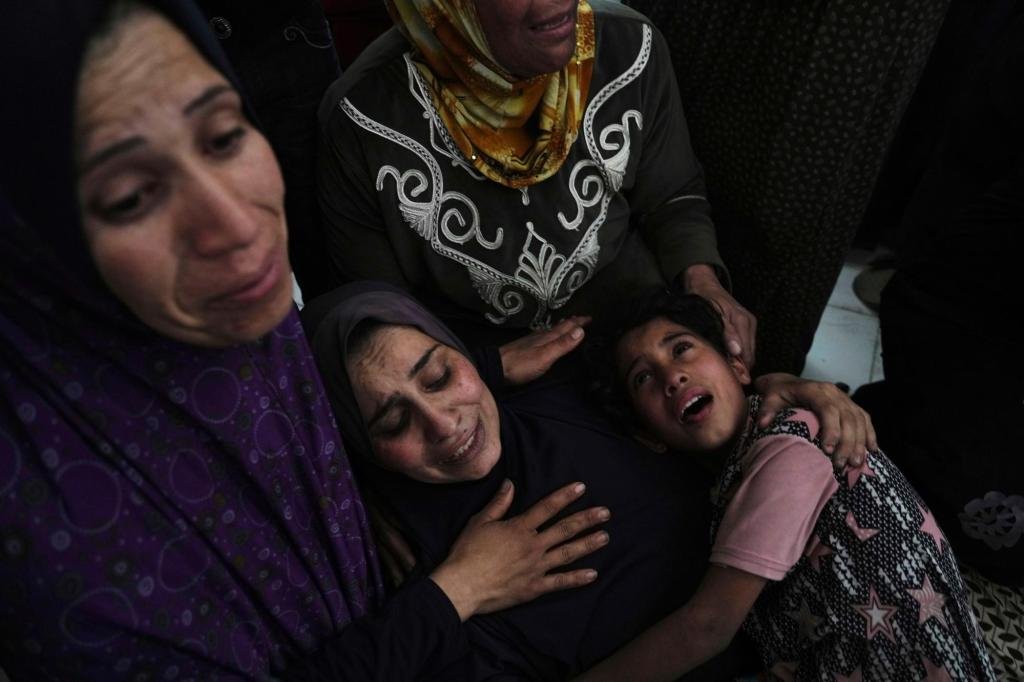Escalation in Gaza: Israel’s Military Operations and Humanitarian Crisis
Recent developments in the ongoing Israeli-Palestinian conflict have escalated tensions as Israel continues military operations in the Gaza Strip. Israeli Defense Minister Israel Katz announced that the military is expanding its operations to seize "large areas" within Gaza to enhance security measures. This aggressive approach follows a series of overnight strikes that reportedly left over 40 Palestinians dead, including several children. The situation is increasingly dire, with international observers and human rights groups raising concerns about the humanitarian implications of such military actions.
Objectives of the Military Operation
The Israeli government has communicated that the aim of this expanded military offensive is to "crush and clean" the area of combatants, specifically targeting members of Hamas. Katz mentioned that the military is looking to establish security zones that will be added to Israel’s buffer zone along Gaza’s security fence. This buffer zone, originally set to enhance security, is viewed by Palestinians as an ongoing land grab that continually diminishes the territory available to them. The complexity of this dynamic emphasizes the difficult balance between regional security concerns and the right of a population to retain its land and sovereignty.
Evacuations and ‘No-Go’ Zones
As part of the military’s operations, Israel has called for the extensive evacuation of residents in areas designated for fighting. Israeli authorities ordered the full evacuation of the southern city of Rafah, indicating a significant shift in military strategy. Consequently, more than 60% of Gaza has been classified as "no-go" zones, severely limiting civilians’ movements and access to essential services. Aid organizations within the region have reported dwindling supplies due to Israel’s ongoing blockade, further exacerbating the humanitarian crisis. The United Nations Office for the Coordination of Humanitarian Affairs has highlighted the challenges humanitarian groups face as they strive to assist those affected by the conflict.
Hostage Situation
The hostage situation remains a focal point in the conflict, with Hamas still holding 59 captives. The Hostage Families Forum has expressed deep concern regarding the safety of their loved ones, emphasizing the need for immediate negotiations for their release. They argue that the ongoing military actions in Gaza place the hostages’ lives in jeopardy, urging for governmental pressure on Hamas to facilitate their return. The committee’s calls for a comprehensive deal to return the captives reflect the desperation of families impacted by these events, emphasizing that time is of the essence.
Civilian Casualties and International Response
As Israel ramped up its military actions, the civilian toll has been staggering, with the Gaza Health Ministry reporting over 50,000 Palestinian deaths since the conflict escalated after the Hamas-led attacks on October 7, 2023. This statistic includes significant civilian casualties, raising numerous questions about the ethics of military strategies employed in densely populated areas. International reactions vary, but humanitarian groups and global leaders emphasize the urgent need for measures that would protect civilians while also addressing the security dilemmas faced by Israel.
Continued Strikes and Impacts on Infrastructure
Reports indicate ongoing airstrikes targeting multiple areas in Gaza, leading to significant destruction of infrastructure and increasing civilian suffering. Strikes have resulted in the deaths of individuals housed in buildings not intended for military use, such as those operated by the UN Relief and Works Agency (UNRWA), which was reportedly used as a shelter for displaced families. Humanitarian representatives have condemned these attacks and the subsequent civilian casualties, further complicating the dialogue regarding military necessity versus humanitarian protection. The destruction of medical facilities and housing compounds the crisis by limiting access to essential services for thousands of families.
Prospects for Resolution
As the conflict continues, the path toward resolution appears increasingly complicated. Both sides face significant pressures, with Israel focusing on its security concerns and Palestinians asserting their rights and needs in the face of military interventions. The international community has a crucial role in mediating negotiations that prioritize the safety of all civilians involved, facilitate humanitarian assistance, and address hostage situations effectively. The stakes are high, and a renewed commitment to peace talks is necessary to avert further loss of life and destruction in the region.
In conclusion, the situation in Gaza reflects a complex interplay of military strategy, humanitarian crisis, and urgent calls for assistance, drawing global attention to the need for effective dialogue and resolution mechanisms. As the conflict unfolds, the international community’s response will significantly impact both immediate outcomes and the prospects for long-term peace in the region.





